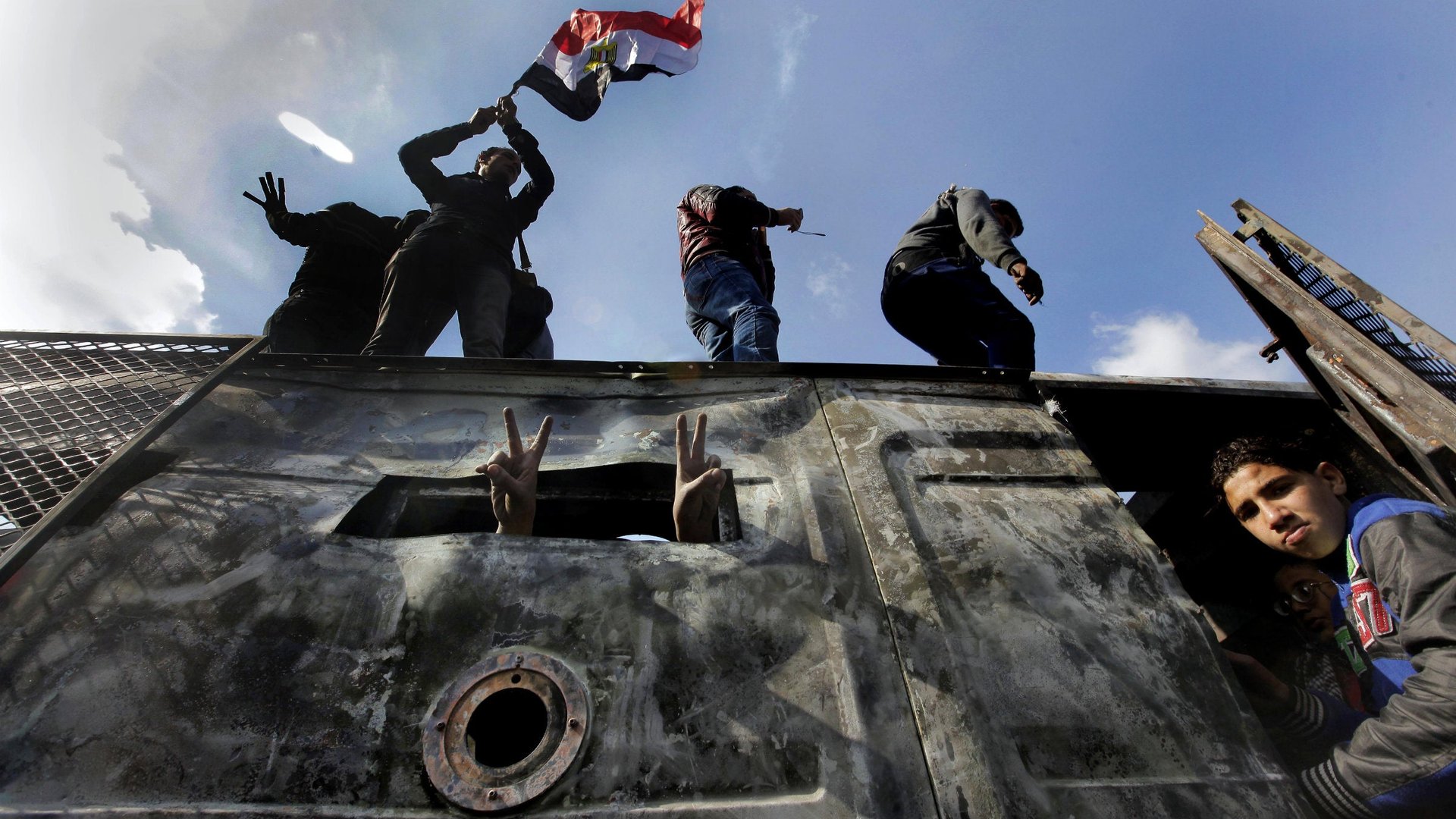Two years after Mubarak’s fall, unrest brings Egypt toward “collapse,” Army chief says
Two years after the protests that brought down President Hosni Mubarak, Egyptians have again seized control of their major cities, and the Army chief says the political crisis “could lead to the collapse of the state.”


Two years after the protests that brought down President Hosni Mubarak, Egyptians have again seized control of their major cities, and the Army chief says the political crisis “could lead to the collapse of the state.”
Egypt’s unrest is part of a new wave of turbulence across North Africa and beyond following the Arab Spring. UK authorities have warned Britons of an imminent threat in Libya and Somalia. Fighting continues in Mali, and militants in Algeria on Jan. 27 attacked an oil pipeline.
In Egypt, parallels to the last stretch of Mubarak’s rule are striking—the resort to emergency rule; public fury at the political, judicial and security system; and the loss of control of major cities to the crowd. Over the last five days, 52 deaths have been reported as protests have engulfed Port Said, Suez, Cairo and Ismailia. Egyptians have ignored a curfew ordered by President Mohammed Morsi.
In an unusual step, General Abdel Fattah al-Sisi—who is simultaneously Army chief and defense minister—today published a warning about the crisis on an official Army Facebook page. Sisi did not say the Army will step in, but his remarks are a stark warning about how he sees events unfolding.
“The continuation of the struggle of the different political forces … over the management of state affairs could lead to the collapse of the state,” Sisi wrote. Economic, political and social challenges facing the country represent “a real threat to the security of Egypt and the cohesiveness of the Egyptian state,” he said.
The Army, Sisi said, will remain “the solid and cohesive block” on which the state rests.